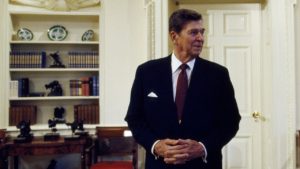
In 1986, President Ronald Reagan told assembled reporters in Illinois that “The nine most terrifying words in the English language are ‘I’m from the government and I’m here to help.’” He was talking about farm policy at the time, but the same types of unintended consequences that made 1980s agricultural policy a mess are being employed in labor markets today. Callum Borchers explains in The Wall Street Journal how a new initiative by New York on pay transparency could actually hurt pay equity by enticing firms to make the hiring process even more opaque. He writes:
Almost every day, someone who is quietly hunting for a key hire calls Diane Hessan to ask the same question: Whom do you recommend?
Ms. Hessan, a former consulting group CEO who sits on the boards of Panera Bread, Eastern Bank and Tufts University, is one of the best-connected business figures in Boston—and something like a password keeper at a speakeasy for six-figure job seekers.
“There’s a whole back channel of conversations going on about jobs that are available,” says Ms. Hessan, adding that many of the calls she fields come from private-equity firms seeking leaders for portfolio companies.
Far from the public job boards of Indeed, LinkedIn and Monster lies another set of career opportunities—often lucrative ones—that are never posted. The volume of such openings is hard to measure; those who hire and who’ve been hired out of sight say the quality of the positions is more notable than the quantity.
Some are management roles that are currently occupied by people whom senior leaders want to push out, but not before discreetly finding replacements.
Other unlisted positions may be at venture-backed startups or relate to new corporate initiatives that, for competitive reasons, companies don’t want to advertise in view of rivals.
Executives have long relied on their professional networks and headhunters to fill these stealth roles, though the hiring game is trending toward openness. New York City this week began requiring employers to include salary ranges in job postings, and some states are poised to do the same or already have done so. Yet businesses that don’t want to tip their hands (or show employees what’s offered to newcomers) can simply do more recruiting in private channels.
A common loophole in pay transparency laws is that companies don’t have to post every job and don’t have to reveal the projected compensation for those unposted positions, says Stephanie Merabet, a labor attorney at Holland & Knight.
It is too early to know how many businesses will skirt disclosure by keeping more openings off job boards, but some likely will, says Tae-Youn Park, who researches pay transparency as an associate professor of human resource studies at Cornell University.
That means you might not learn of an exciting role until someone else gets it, unless you’re the one who comes to mind when a company wants to hire on the sly.
Read more here.




